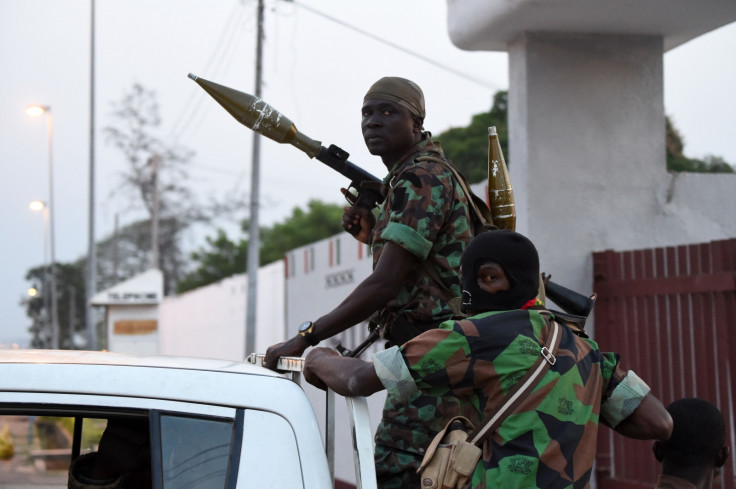Ivory Coast: Government implements emergency plan following mutiny
Ivory Coast has been rocked by a wave of mutinies by army officers over pay and living conditions.

The situation continues to be tense in Ivory Coast, where the government implemented an emergency plan after new mutinies broke out earlier this week.
This comes a week after Ivory Coast was rocked by a wave of mutinies by army officers who demanded to be paid financial settlements − so-called "ecomog" − packages that they claim the government agreed with them as part of a deal to end the country's civil war, but were never delivered.
The agreement for the payment of these premiums to 8,400 soldiers aroused covetousness, and a new wave of anger spread to a number of cities on 17 January, including Bouaké and the political capital, Yamoussoukro, where four mutineers were killed, and several injured.
This time, witnesses described the mutineers as officers and gendarmes – paramilitary police officers – who are not paid "ecomog" demanding to be paid premiums, and improved living conditions.
Gendarmes also took over the railway station in the city of Daloa before being driven out by the population, according to a local resident, who said most fellow countrymen are irritated by the unrest: "If they (mutineers) continue like this, the inhabitants will react. People are fed up," RFI quoted him as saying.
In the commercial capital Abidjan, the autonomous port was blocked by disgruntled gendarmes firing into the air, before calm returned to the biggest port in West Africa, located in Abidjan's southern districts. The government dispatched soldiers of the Republican Guard to control the situation.
Government implements emergency plan
During the 18 January Council of Ministers, officials took turns to outline measures taken to stabilise the situation, including an emergency plan. Bruno Koné, the government spokesman pointed out that President Alassane Ouattara had instructed the major commands of all security forces to initiate meetings with all components "in order to improve their living conditions".
"The head of state therefore asks all the military, gendarmes, police officers, customs officers, water and forest officers and prison guards to contribute to the return of calm," Koné is quoted as saying by RFI. "The president (...) assures them of his firm determination to improve their living and working conditions and to build republican forces in the service of the nation." The spokesman said investigations are under way to identify those responsible for the disorder.
Interior Minister Hamed Bakayoko, meanwhile, acknowledged that problems are real but that the government's team was working hard to find solutions via the consultations with security forces representatives.
The head of defence in government, minister Alain-Richard Donwahi said the meetings would serve to pass on correct information about reforms of the army. "We asked the high command, and therefore the new hierarchy, to have meetings with the men to pass the information, because there is a lot of information that is wrong. Many rumours have circulated. So we want to discuss directly with our men, so that they are informed of what is planned for the reform of the army that is being implemented with many things that had not been told to them before."
© Copyright IBTimes 2025. All rights reserved.





















